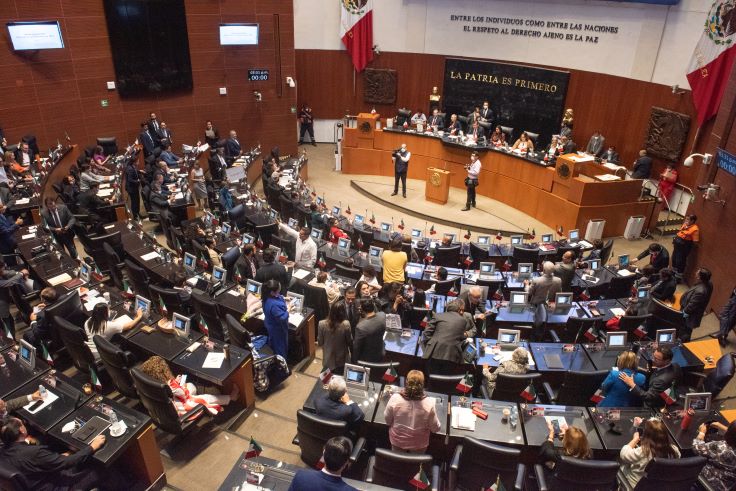
Mexico’s Judicial Reform: The Implications
Judicial reform presents significant challenges to legal landscape.
BY FRANCISCO RIVERO,
ARTURO MUÑOZ HOLGUIN
AND ISABELLA LORDUY
On August 21, 2024, judges of Mexico’s federal judicial branch initiated an indefinite strike in response to President López Obrador’s judicial reform. This reform aims to change the structure and selection process of the judiciary, including a controversial proposal to elect federal judges by popular vote.
The reform has sparked widespread protests within the federal judiciary and has the potential to continue to impact business and financial markets. This alert outlines the current situation, proposed changes, and potential impacts for businesses and international stakeholders operating in Mexico.
JUDICIAL REFORM
Key elements of the judicial reform include:
- The Supreme Court of Justice magistrates, circuit magistrates, and district judges would be elected directly by popular vote.
- Capping judicial officials’ salaries at a level not exceeding the President’s salary.
- Reducing the Supreme Court from eleven to nine justices and only meeting in plenary public sessions.
- Creation of a Tribunal for Judicial Discipline, also elected by popular vote, with broad powers to investigate, sanction, or impeach judges and Supreme Court justices.
- Shortening Supreme Court justices’ terms from 15 to 12 years and eliminating the right to a retirement pension.
STRIKE AND CRITICISMS
The work strike by federal judges and magistrates began on August 21, 2024, as a pressure tactic against the judicial reform. The Federal Judiciary Council (Consejo de la Judicatura Federal) acknowledged these events and mandated the admission and processing of only urgent matters in accordance with applicable regulations. The official communication provided a non-exhaustive list of “urgent matters,” including cases handled in federal criminal justice centers, situations where lives are at risk, issues affecting health rights, provision of basic services, amparos deemed urgent, and precautionary measures in cases of domestic violence. To determine a case’s urgency, two key factors must be considered: (i) The human rights at stake and potential consequences of suspending the decision, and (ii) Possible impacts on economic and social rights for particularly vulnerable individuals.
The ongoing judicial strike has had a significant impact on the administration of justice in federal courts. More concerning still, the timeline for normalization of federal court proceedings remains unknown. This uncertainty has led to broader economic repercussions, as evidenced by Morgan Stanley’s decision to downgrade Mexico to UW (underweight) status, negatively impacting Mexican markets.
On September 11, Mexico’s Senate approved the judicial reform with 86 votes in favor and 41 against. During the voting process, multiple demonstrators broke into the building to express their opposition to the reform. Following this approval, the next steps include the law’s promulgation, publication, and eventual entry into force.
CONCLUSION
Mexico’s judicial reform presents significant challenges to the country’s legal landscape. In the short term, the ongoing judicial strike has disrupted federal court operations, creating uncertainty with regard to current legal proceedings. With only urgent matters being processed, non-urgent cases face potential delays.
Looking ahead, if enacted, the reform would fundamentally reshape Mexico’s judiciary. Changes in judicial selection and term limits could affect the timing and consistency of legal decisions, while international concerns may impact investor confidence and trade relations. These shifts may require businesses to adapt their legal strategies and risk management approaches.
Francisco Rivero Francisco heads Reed Smith’s Latin America Business Team and is former Co-Practice Leader of Reed Smith’s International Arbitration Group. Arturo Muñoz Holguin is a member of Reed Smith’s Energy & Natural Resources Group. Isabella Lorduy is an associate at Reed Smith.
This article is based on a client alert by Reed Smith. Republished with permission.
RELATED ARTICLE
Next Target: Mexico’s Autonomous Agencies
Mexico Judicial Reform Not About Judiciary












